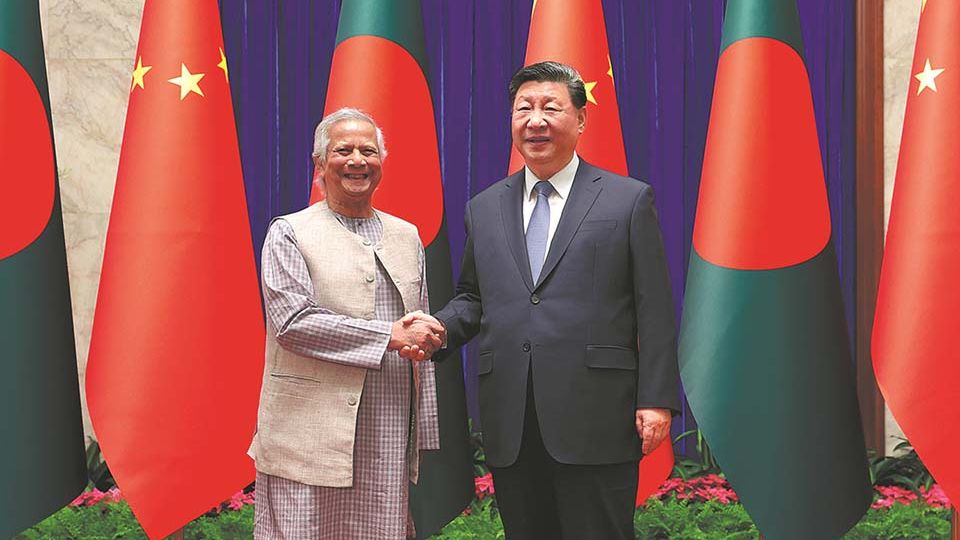April 3, 2025
DHAKA – The Bangladesh-China bilateral relationship is taking a new turn following the recent visit by our chief adviser to the world’s second largest economy. The visit is being hailed as successful by experts as it opens up the potential to improve and expand trade and cultural ties between the two countries. We agree with the experts, and believe we have a great opportunity—one we must fully utilise—in order to make the Dhaka-Beijing ties more economically relevant.
During his four-day official visit from March 26 to March 29, Bangladesh Chief Adviser Prof Muhammad Yunus had a bilateral meeting with Chinese President Xi Jinping, as well as meetings with the Chinese vice-president, vice-premier, water resources minister, and other dignitaries. The focus of this visit was set on fostering commitments and exploring various opportunities for trade, economic and cultural collaboration. The highlight of the visit was the Chinese government and businesses making pledge to lend, invest, and provide grants worth $2.1 billion. Around 30 Chinese companies committed to investing nearly $1 billion to establish a Chinese Industrial Economic Zone in Chattogram. Funds have been committed for the modernisation of Mongla port, too, among other things.
The Chinese government promised to urge local businesses to relocate their manufacturing plants to Bangladesh in order to diversify production destinations. Two other issues of importance to Bangladesh that were discussed were water resource management and resolution of the Rohingya crisis. On both fronts, China reassured Bangladesh of providing support. The necessity of initiating negotiations on a bilateral free trade agreement (FTA) and optimising the investment agreement was acknowledged by both parties with due seriousness.
These are, indeed, signs of a bilateral relationship turning a new leaf. And if Bangladesh plays its cards right, it can be immensely beneficial for the country’s economic and trade interests. Bringing in Chinese investment will surely boost our economy and help create many jobs. However, there are issues that need to be sorted out on the Bangladesh side—and promptly. For one, despite the zero-duty trade benefits offered by China, Bangladesh has failed to make proper utilisation of those benefits to expand its presence in the Chinese market, with shipments from Bangladesh hardly crossing the $1-billion mark annually. Meanwhile, over the years, the volume of Chinese imports has steadily risen in Bangladesh. Bangladesh must rectify this imbalance and take full advantage of the zero-duty system to expand its product base in China.
Overall, we feel optimistic about this visit’s outcomes and believe new opportunities have opened up to build and strengthen a thriving bilateral relationship between Bangladesh and China. What the Bangladesh side needs to do is be prudent, pragmatic and diligent in turning the pledges into agreements to make certain that our own interests are protected. As the chief adviser said, the Dhaka-Beijing ties are ready for the next stage; we just have to make sure that it’s done on an even footing.


